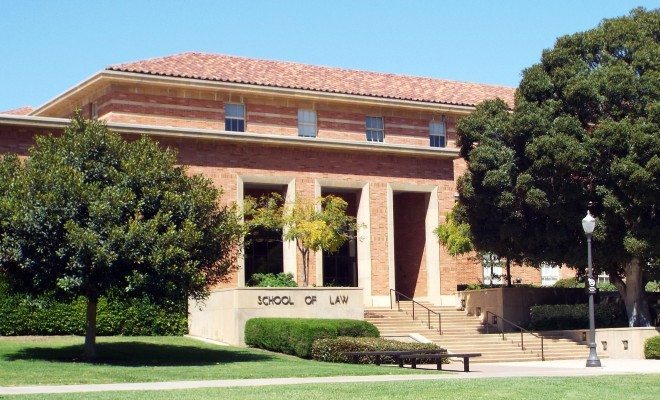 Image courtesy of [Coolcaesar via Flickr]
Image courtesy of [Coolcaesar via Flickr]
Schools
Law School Incubators Are Attacking These Two Major Problems in America
In the current economic climate, it is incredibly hard for young people to get proper experience in their desired fields. For law students, there are little-to-no options when it comes to receiving training and being mentored by professionals in their chosen specialties. On the other end of the spectrum, many Americans cannot afford costly legal services for even basic civil court proceedings. In an effort to innovate and grow their programs, law schools across the country are attacking both these problems by running legal incubators to better train law students and provide low-cost services to low-income Americans.
Incubators: Training Law Students
The Incubator for Justice, created at the City University of New York, has been successful in preparing recent graduates to enter the work force. Over 40 law schools throughout the United States have now begun offering select students the opportunity to participate in one of these prestigious programs, including major schools such as Rutgers School of Law, the University of California, Los Angeles School of Law, and the James E. Rogers College of Law at the University of Arizona. Schools create incubators usually by implementing small law firms on their campuses or in nearby cities in which the students take on a large amount of cases for very little pay.
Most other professions offer graduates a chance to hone their skills under the guidance of experienced professionals. Medical students do internships and residencies, and dentists participate in a similar training program, as do most workers of the medical field. These incubator programs give new lawyers the chance to work under and be led by experienced lawyers and retired judges in certain programs. These programs provide recent law school graduates with many of the tools they need to join a prominent law firm upon completion, continue working toward a legal aid career, or possibly begin their own firm in the future.
Law students often are able to participate in clinics and externships offered through their schools, but this is still not enough training. Incubators are similar to the aforementioned opportunities, although they allow participants to take on a much more extensive caseload. Once law students graduate, they are expected to dive right into the field, although this is very difficult to do when they have not first been given the proper instruction and tools.
Incubators: Bringing Legal Services to the Masses
These programs help not only law school graduates, but also the public. One of the biggest problems in the United States is the lack of affordable legal services, which is needed by many Americans. People of lower incomes often cannot afford legal services due to the prohibitive hourly cost of a lawyer’s time. An incubator program charges $75 or less an hour in most cases, and sometimes they offer their services pro bono.
Millions of Americans lack proper legal representation, especially in cases that could completely change their lives. This is due to the high price of lawyers, how most are concentrated only in highly populated areas, and few can or want to take on work that isn’t very profitable. Many people also end up not being represented because they are rejected when they apply for civil legal aid. It was found that in 70 to 98 percent of the cases brought to civil court in the United States, one or both parties did not have a lawyer present to represent them. There are many programs already established throughout the country that are dedicated to providing free or low-cost legal services to people of low income, although most have very few resources available and few lawyers willing to take on the extra–sometimes menial–work. Given how many law school graduates are unable to find work in the field, more should be encouraged to do this type of work.
One of the most difficult aspects of starting and running an incubator program is finding the proper funds to support it. Many of the schools allocate funds for them, although this is not always enough to run them. The Moritz College of Law at the Ohio State University has been running a program that is financed by multiple sources, such as alumni donations and private funds. Michigan State University offers an innovative approach to its program by partnering with government organizations, nonprofits, and other university departments so that participants can engage and practice in a wide variety of subjects. These programs, as well as many others, seem to be thriving, as they have given students genuine experience and have provided legal aid to those who need it most.
It is widely said that it is easier to get into law school these days due to far fewer people applying and enrolling. The current job market for lawyers is abysmal, and so these programs could be instrumental in helping graduates begin prosperous careers. Only 40 percent of law school graduates are employees at law firms, and 20 percent hold jobs that don’t even require a law degree. Considering how astronomically high the average debt of most law school graduates is, it is imperative that they start their careers off on the right foot so that they can pay off this debt and achieve success.








Comments